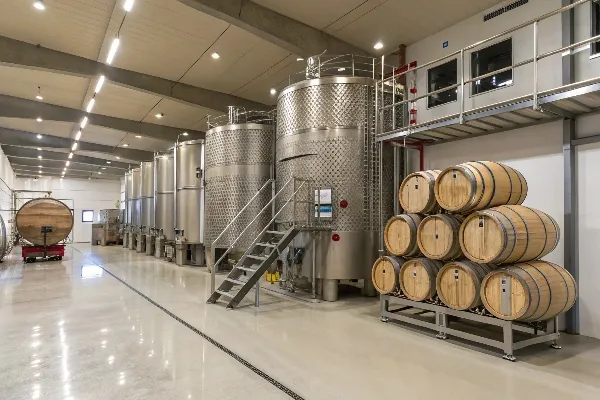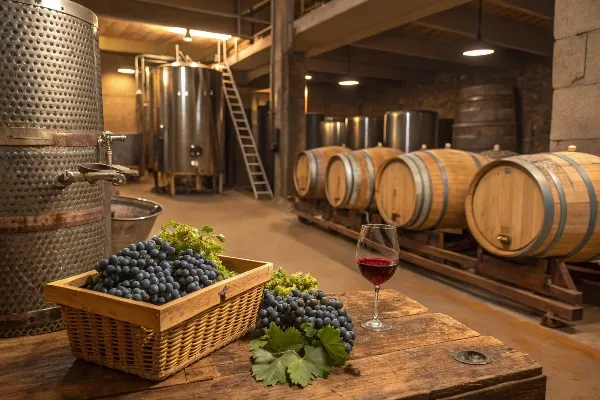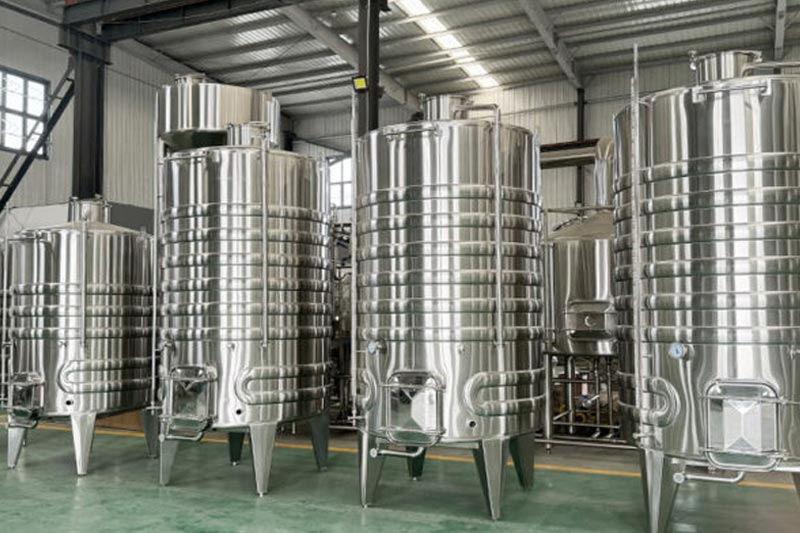Dreaming of making great wine but overwhelmed by the array of equipment and supplies you need? Choosing the wrong gear can lead to poor results and wasted time. The right wine making equipment ensures every batch is a success, from fermentation to bottling.
What equipment do you need for making wine?
To make quality wine, you need a complete wine making kit: fermenters, carboys, bottles, corks, pumps, filters, and essential supplies like yeast, oak, and cleaning gear. Proper wine equipment ensures smooth, safe winemaking, allowing home vintners and commercial winemakers to produce top results every batch.
What Is Wine Making Equipment and Why Does It Matter?
Wine making equipment includes all the tools and supplies you need to make wine—from basic carboys to advanced pumps and filtration systems. The equipment you need depends on whether you’re starting at home or scaling up to a professional winery. Good wine kit can make or break your vintage.

| Equipment Category | Home Winemaking | Commercial Winery |
|---|---|---|
| Fermenters/Carboys | 1-6 Gallon Glass/Plastic | 50+ Gallon Stainless Fermentors |
| Filtration Systems | Gravity Filter Kits | Pressure/Automated Filtration |
| Pumps | Manual Siphons | Food-Grade Electric Pumps |
| Bottling Supplies | Hand Corkers, Bottles | Automatic Bottlers, Bulk Corks |
| Cleaning & Sanitation | Brushes, Solution Kits | CIP Systems, Industrial Cleaners |
| Oak Products | Oak Chips, Cubes | Barrels, Oak Spirals, Tanks |
Why does it matter?
A premium selection of home wine making equipment improves wine quality, prevents spoilage, and saves time. Commercial winemakers rely on advanced winemaking supplies to scale production, control variables, and deliver consistent results. Choosing the right wine making equipment and wine making supplies and equipment is the first step to mastering the winemaking process.
How to Choose the Best Wine Making Kit for Your Needs?
Choosing a wine making kit starts by deciding your batch size and wine style. Kits range from 1 gallon starter sets to deluxe wine equipment for larger batches and advanced recipes.
Key questions to ask:
- How much wine do you want to make (1 gallon, 6 gallon, or commercial volumes)?
- Are you making red, white, fruit, or specialty wines?
- Do you need a basic kit or a deluxe wine making kit with accessories?
Must-have items in a quality wine making kit:
- Primary fermenter (bucket or tank)
- Glass carboy (secondary fermenter)
- Airlock and stopper
- Hydrometer
- Racking cane and pump
- Wine bottles, corks, and corker
- Sanitizer and cleaning supplies
- Yeast, nutrients, and other ingredients
Tip: Deluxe wine making kits often include premium oak products, a filter, and a larger inventory of accessories, making them ideal for serious hobbyists or boutique winemakers.
Related Resource: Learn about craft beer brewing equipment for versatile small-batch brewing.
Essential Wine Making Supplies: From Grape to Glass
A successful batch of wine relies on more than just fermenters and bottles. Quality wine making supplies are essential for every stage of the process.
Top wine making supplies you’ll need:
- Fresh grapes or fruit: The core ingredient for every wine.
- Yeast: Converts sugar to alcohol.
- Additives: Campden tablets, acid blend, nutrients, and pectic enzyme for flavor and stability.
- Oak: Chips, cubes, or barrels for aging and complexity.
- Filter and fining agents: For clarity and polish.
- Bottling tools: Including a corker, premium corks, and a selection of wine bottles.
- Sanitizer and cleaning accessories: To avoid contamination.
Stat: Home winemaking supply sales have grown over 18% in the last five years, driven by demand for small batch, customized wine at home.
Pro Tip: Invest in a wide selection of home wine making supplies and equipment to experiment with recipes and perfect your vintages.

Step-by-Step: The Winemaking Process and Key Equipment
Understanding the winemaking process helps you select the right equipment you need to make wine at home or commercially.
Main stages and the equipment required:
- Crushing and Destemming
- Equipment: Fruit crusher, destemmer, or manual tools for small batches.
- Primary Fermentation
- Equipment: Food-grade fermenter (plastic or stainless), airlock, and gasket.
- Racking
- Equipment: Racking cane, siphon pump, and a clean carboy.
- Secondary Fermentation
- Equipment: Glass carboy or fermentor, airlock.
- Aging
- Equipment: Oak barrel, oak chips, or stainless steel tank for commercial wine.
- Filtering and Fining
- Equipment: Filter system (gravity or pressurized), filtration agents.
- Bottling
- Equipment: Bottling wand, bottles, corks, corker, and labels.
Fact: Filtration is critical for commercial wine clarity and stability. For home winemaking, a simple gravity filter often suffices, but premium results require advanced equipment.
Wine Bottles, Corks, and Storage—Getting Packaging Right
Your wine’s journey isn’t over after fermentation. Packaging and storage are vital for quality, shelf-life, and presentation.
Key supplies to make bottling a breeze:
- Wine bottles: Clear for whites, dark for reds. Available in 375ml, 750ml, and magnum sizes.
- Corks: Natural or synthetic—choose for longevity and flavor.
- Corkers: Handheld for home wine, floor models for larger batches.
- Capsules and labels: For professional finish.
- Racks: Store bottles horizontally to keep corks moist.
Best Practice: Store wine bottles in a cool, dark cellar with stable humidity to age your wine to perfection.
Case Study: A startup craft winemaker switched from screw caps to high-quality corks and saw customer satisfaction and perceived value increase by 27%.
See Also: Wine fermentation vessel options for both home and commercial cellars.
Understanding Carboys, Fermenters, and Barrels
The right fermenter shapes your wine’s character and quality.
- Glass carboy: Popular for 1-6 gallon batches. Easy to clean, doesn’t hold odors.
- Plastic fermenter: Lightweight, cost-effective, best for starter kits.
- Stainless steel fermentor: Durable, ideal for larger batches and commercial wineries.
- Oak barrel: Imparts premium flavors, tannins, and complexity to wine.
- Barrel alternatives: Oak chips, spirals, or cubes are ideal for small-batch home winemaking.
Comparison Table: Wine Fermentation Containers
| Container Type | Pros | Cons | Best Use Case |
|---|---|---|---|
| Glass Carboy | Nonporous, easy to clean | Breakable, heavy | Home winemaking |
| Plastic Fermenter | Inexpensive, lightweight | Scratches, limited lifespan | Starters, small batch |
| Stainless Steel | Durable, no flavors | Expensive | Commercial/boutique |
| Oak Barrel | Adds flavors/complexity | Cost, maintenance | Premium/red wines |
Insight: Commercial wine makers use stainless steel for consistency and cleanliness, switching to oak barrels for deluxe wine releases.

Deluxe Wine Making Kits vs. Basic Starter Sets
Should you buy a deluxe wine making kit or start simple?
- Starter kits are perfect for those new to wine at home—usually 1 gallon or 6 gallon sets with just the basics.
- Deluxe kits come with extra supplies and equipment you need for more advanced winemaking, including oak products, filters, better corkers, and larger carboys.
What’s included in a deluxe wine making kit?
- Large primary and secondary fermenters
- Glass carboy
- Premium corker and corks
- Hydrometer, thermometer
- Racking pump, hoses, filter system
- Yeast, stabilizer, and fining agents
- Bottling wand and accessories
Benefits:
- Higher quality wine
- Larger batch sizes
- More flexibility with recipes and winemaking experiences
Link: Check out wine making equipment for sale for premium and commercial solutions.
How Do You Scale Up from Home to Commercial Winemaking?
Scaling up your winemaking operation requires professional equipment and supplies.
Key steps:
- Increase batch size from 6 gallon to 100+ gallon fermentors.
- Upgrade pumps, filtration systems, and bottling lines.
- Invest in bulk ingredients and a consistent inventory of winemaking supplies.
- Implement advanced cleaning and sanitizing systems.
- Use commercial racks, barrels, and storage solutions.
Stat: More than 75% of boutique wineries report their biggest challenge is sourcing quality equipment and managing growing inventory.
Resource: Commercial distillery equipment supports wine, cider, and spirit operations alike.
Tips for Maintaining Your Wine Equipment Inventory
Keeping your winemaking supplies organized and sanitized is critical for producing consistent, high-quality wine.
Maintenance checklist:
- Inspect all pumps, gaskets, and seals before each batch.
- Clean and sanitize carboys, fermenters, and bottles after every use.
- Track ingredient and supply inventory to avoid shortages.
- Replace worn or damaged accessories immediately.
Pro Tip: Label your equipment and supplies to prevent mix-ups between batches, especially if making fruit wine or specialty recipes.
Common Wine Making Problems—and How the Right Supplies Solve Them
Every winemaker faces challenges: stuck fermentations, cloudy wine, off-flavors, leaks, or broken corks. The right equipment and supplies help you solve problems quickly.
| Problem | Solution |
|---|---|
| Stuck Fermentation | Use fresh yeast, check temperature, add nutrients |
| Cloudy Wine | Add fining agent, use filtration system |
| Leaky Bottles/Corks | Upgrade corker, use quality corks, check gaskets |
| Inconsistent Batches | Standardize equipment, maintain inventory |
| Off-Flavors | Clean/sanitize, use fresh oak, follow recipes |
Remember: Quality wine making equipment and supplies are your insurance policy for delicious, consistent wine.
FAQs: All About Wine Equipment, Supplies, and Kits
How much wine can you make with a 6 gallon kit?
A standard 6 gallon wine making kit produces about 30 bottles of wine, perfect for personal use or small events.
What’s the difference between a carboy and a fermenter?
A carboy is a glass or plastic vessel used for secondary fermentation, while a fermenter is typically a larger, primary container for the initial ferment.
Is a wine filter necessary?
For best wine clarity and stability, especially in commercial wine, a filter or filtration system is highly recommended.
Do I need oak barrels for home winemaking?
No, but using oak chips or cubes can mimic barrel aging flavors in smaller, home batches.
Where can I buy quality wine making supplies and equipment?
Our wine making equipment page offers a full range of kits, supplies, and professional equipment for every winemaker.
Key Internal Resources for Further Reading
- Wine Making Equipment
- Wine Fermentation Vessel
- Craft Beer Brewing Equipment
- Commercial Distillery Equipment
- Nano Brewery Equipment
Summary: Most Important Things to Remember
- Select wine making equipment and supplies based on your batch size and goals.
- Use a starter kit for beginners, upgrade to deluxe kits for better results.
- Invest in quality bottles, corks, pumps, and filtration systems for clarity and taste.
- Maintain and sanitize your inventory for every batch.
- Explore our full range of wine making equipment and supplies for home, craft, and commercial winemaking.
Want to make the best wine at home or scale up to a professional winery? Partner with an experienced brewing equipment manufacturer for technical support, customizable solutions, and reliable global service—start your winemaking journey today!
